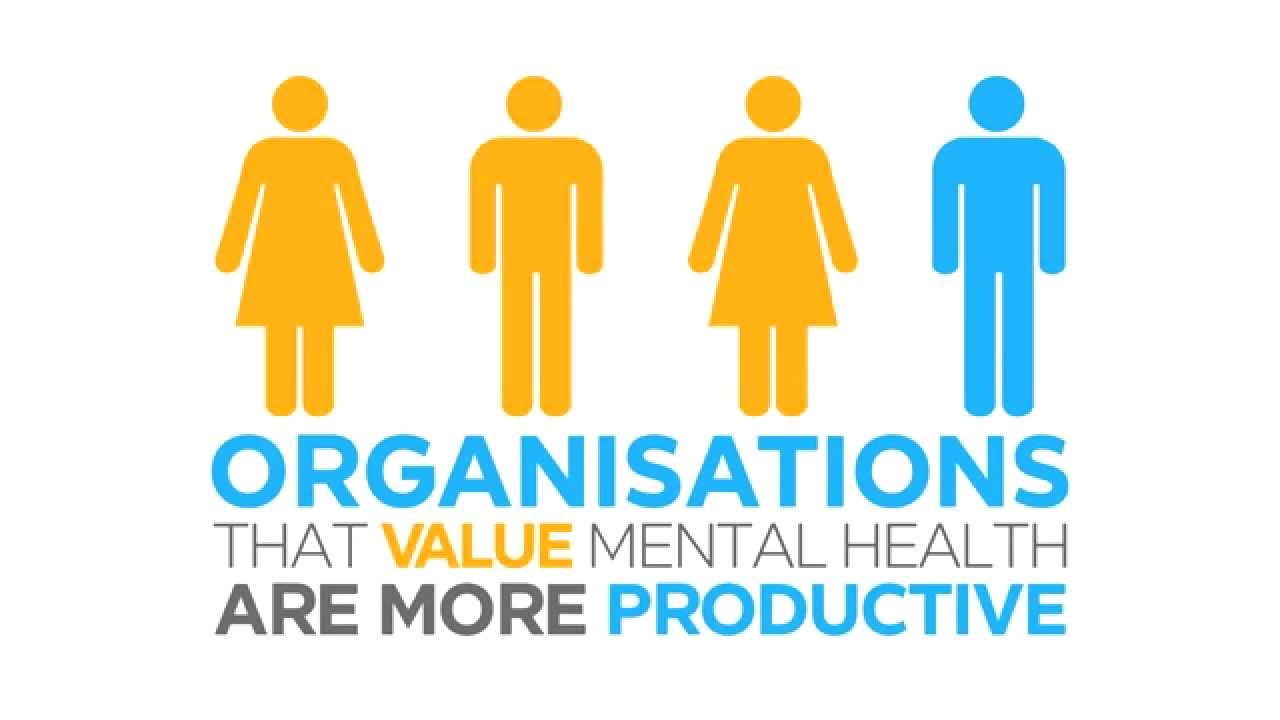How Workplaces in India Can Promote Mental Well-Being and Health
The workplace of an individual has a significant impact on his or her mental well-being, and there is a growing awareness about this fact.

The World Health Organization defines positive mental health as “a state of well-being in which every individual realises his or her own potential, can cope with the normal stresses of life, can work productively and fruitfully, and is able to make a contribution to her or his community.” Positive mental health can be promoted and maintained by various ways. It requires a health living, supportive environment, good health, sound working environment and several other little things that area part of our daily lives.
Similarly, positive mental health is also affected by several factors which belong to our daily living as well. Workplace is one of the crucial factors among many.

Source: Maxpixel
According to the National Alliance on Mental Illness, “Work is at the very core of contemporary life for most people, providing financial security, personal identity, and an opportunity to make a meaningful contribution to community life.”
The workplace of an individual has a significant impact on his or her mental well-being, and there is a growing awareness about this fact. In his book “Work, Unemployment, and Mental Health,” Peter Warr has stated that gainful employment provides five categories of psychological experience that promote mental well-being:
- Time structure (an absence of time structure can be a significant psychological burden)
- Social contact
- Collective effort and purpose (employment offers a social context outside the family)
- Social identity (employment is an essential element in defining oneself)
- Regular activity (organising one’s daily life)
Even as we keep the above points in mind, it is important to note that mental health problems are among the most important contributors to the burden of disease and disability worldwide.

Source: Flickr
It is estimated that five of the ten leading causes of disability around the world are due to mental health issues. Unfortunately, the impact of mental health disorders on employee productivity has long been underestimated, even though the workplace is where one spends most of their professional life. We live in a world where appraisals, feedback, competition, meeting deadlines and constant improvements are only some of the enormous pile of stressors that we encounter at the workplace. The working space, context of work, and interpersonal relationships are also unavoidable factors that impact the mental health of employees.
In today’s global economy, mental health is an essential driver for successful business, and there are many reasons why employers should make the promotion of mental health in the workplace, a priority. In the share of the cost of occupational and work-related diseases, mental illnesses have a share of 7% on a global level. Therefore, mental health is a pressing issue in its own right.
An oft-discussed topic is that of work-life balance. It emphasises the need for individuals to create a healthy balance between work (career and ambition) and lifestyle (health, pleasure, leisure and family).

Source: Flickr
It is a fluid concept and a very individualised balance that one creates for themselves depending on a lot of factors like — personality, profession, family demands, along with other environmental factors. A sound health (physical and mental) plays a very crucial role in determining one.
Globalisation and the advances in workplace technology have resulted in rapid changes in the nature of work across different fields. This affects the content, organisation and intensity (quality and quantity) of the work of an employee, which increasingly requires more skills and competency regarding innovation, communication and social intelligence. While these changes are rewarding for employees, they can also mean that employees experience more pressure and stress. The increase in workload demands upon their cognitive, social and psychological skills which have a direct impact on their mental well-being.
Therefore, mental health is crucial: both for the formation of these skills and their efficient use in the workplace.

Mental health problems can affect anyone, of any age, culture, socio-economic status and background. However, with adequate support, most people can and do recover. By making changes to the workplace environment, and offering support to employees, the duration and severity of mental health issues can be reduced and recovery can be accelerated. The well-being of employees ensures constant performance, less absenteeism, productivity and success for the employee and the organisation, and in the larger picture, for an economy.
Unfortunately, it is not an issue that is addressed by the Mental Health Care Act 2017 and nor are there any policies that account for the same. Nevertheless, workplace mental health is an important aspect of a working individual’s life and overall well-being. With time, more number of companies are getting open to the idea of accommodating to address mental health within the working place. Although it is difficult to quantify the impact of work on personal, social and psychological well-being, it is agreed. Workplaces can offer several measures to promote psychological well-being and positive mental health, such as:
- Flexibility in working hours and giving employees the option to work from home, as and when possible
- Introducing and encouraging breaks from work that are conducive to social interactions
- Making employer and employee relationships more open and friendly
- Advancing career development and career mapping for freshers and old employees to keep steady growth
- Offering in-house counselling for employees — addressing both personal and organisational problems
- Involving employees in the process of decision-making
- Recognizing and rewarding the contribution of employees
With the increasing prevalence of mental disorders, workplace mental health is an essential need in the time of increasing stress.

Additionally, the stigma around mental health can be reduced by employer support to employees that can start a discussion around mental health. Organisations have slowly taken up the responsibility to support individuals with mental disorders at the workplace. There have also been questions where the question of a ‘mental health leave’ (parallel to sick leave) has come in the picture. Though it does not form a uniform policy privilege, the debate around it has begun. The culture of talking about mental health is slowly taking place and the momentum that needs to be maintained. We all play a critical role in the advocacy of mental health, including the workplace.
(Written by Pragya Lodha, Associate Programme Developer, The MINDS Foundation, Vadodara, Gujurat)
Like this story? Or have something to share? Write to us: [email protected], or connect with us on Facebook and Twitter.
NEW: Click here to get positive news on WhatsApp!
If you found our stories insightful, informative, or even just enjoyable, we invite you to consider making a voluntary payment to support the work we do at The Better India. Your contribution helps us continue producing quality content that educates, inspires, and drives positive change.
Choose one of the payment options below for your contribution-
By paying for the stories you value, you directly contribute to sustaining our efforts focused on making a difference in the world. Together, let’s ensure that impactful stories continue to be told and shared, enriching lives and communities alike.
Thank you for your support. Here are some frequently asked questions you might find helpful to know why you are contributing?


This story made me
-
97
-
121
-
89
-
167











